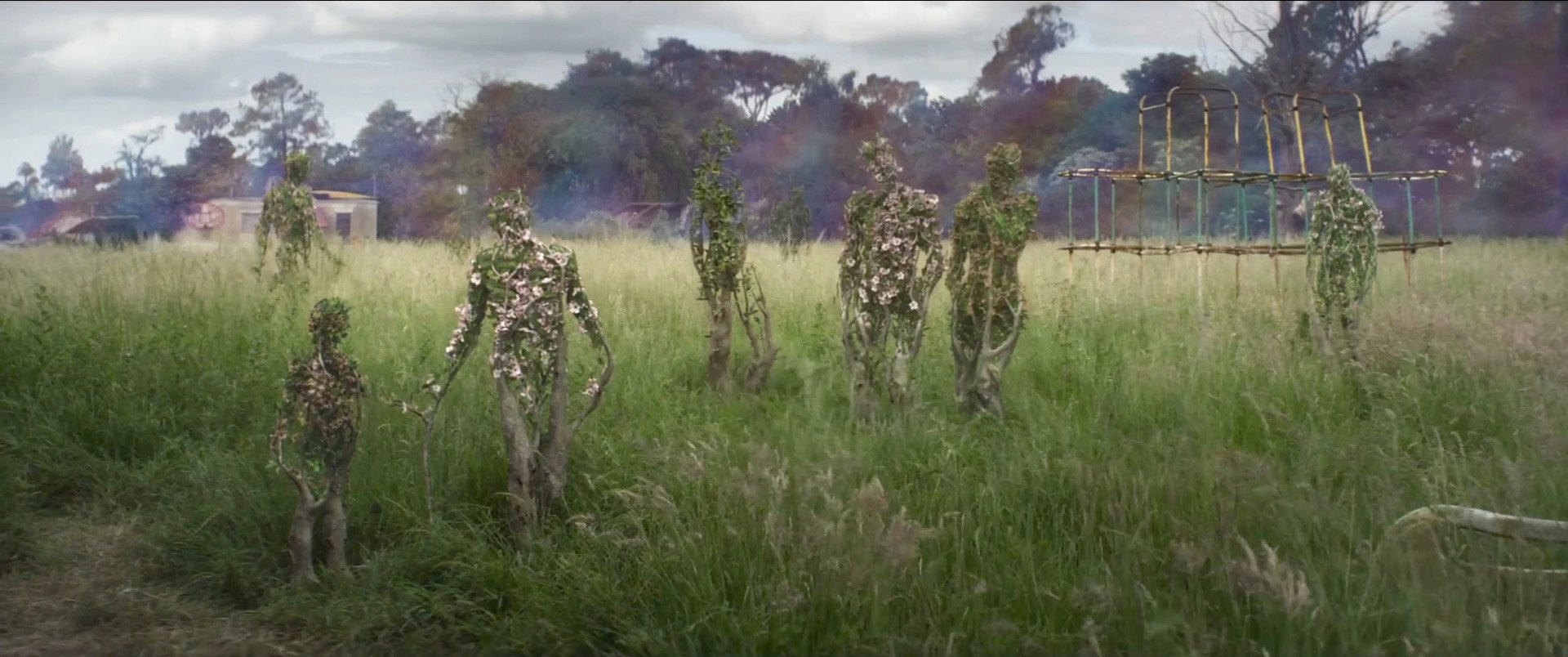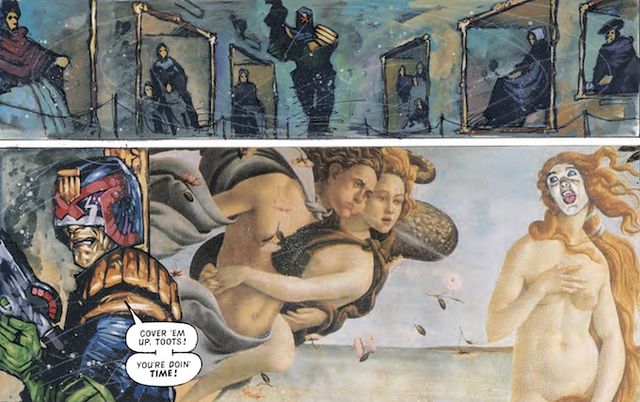
The May issue of Sight & Sound includes me reviewing the Chinese film Detective Chinatown 2, in which a pair of goofball detectives visiting from Beijing get all starry eyed in New York on the trail of a killer whose identity is obvious from the minute that the American actor in question walks on. Joe McCulloch, writing about English translations of Japanese manga in the anthology Critical Chips 2, said experiencing a foreign culture in a translated version was like looking at a garden from the outside through a hole in the wall, unable to really know the situation in which the works exist. Which is also how I felt upon discovering that Detective Chinatown 2 had made $530 million in its own territory.
Annihilation has remarkable gardens, to the point where it ventures into the natural sublime in proper Burke-ean terror-tinged ways—a rarity in a culture more comfortable with the technological sublime instead. It puts Alex Garland into a strand of British film making that doesn’t have many members, somewhere in an overlap of Danny Boyle and Peter Strickland, although Annihilation deals directly enough with cancer and metabolic change to ally Garland with David Cronenberg as well. The alterations from the source book make for a more conventional ending, but some of Garland’s tweaks are appropriately visual rather than thematic. When the characters stumble across a house overgrown in greenery, only we and Natalie Portman recognise that the stairway looks very similar to her house in the real world, and Garland gracefully doesn’t even give her a double-take to flag the matter up. A monster duly terrorises her there, up from the id of her own adulterous bedroom.
And Annihilation promptly terrorised and stress-tested some outposts of current film criticism to near-destruction in about five days flat, which was always going to happen as soon as something turned up on Netflix that we might actually feel people should see. Twin Peaks gathered the kindling for this turn of events, but it was 18 hours long, so claims that it was Clearly A Film became a shibboleth for folk not comfortable admitting that work of quality could merit any other label. Annihilation though really is a film—made as one and delivered as one, until Paramount chickened out and sold it on. The results have been calamitous, a coming together of both the major current critical regressions at the same time. A fixation on content and blindness to form—which is the approach needed if you’re inclined to see a film’s -isms and ideologies as the work’s true essence and the way its makers will reveal their hidden wickedness—has instead dented our skills at sounding convincing about why one form is better than another. Meanwhile an inability to speak in any decent motivational rhetoric—never mind poetics—instead of dry academic language has squelched our ability to motivate a passing viewer to open their minds, or indeed open an envelope. After voluntarily surrendering those two weapons, what’s left?
 MACH 1, Judge Dredd Case Files
Batman Mask of the Phantasm
I’m going to be at the inaugural Portsmouth Comic Con on Saturday 5th May to chair a couple of panels. One of them will be about the art of Star
MACH 1, Judge Dredd Case Files
Batman Mask of the Phantasm
I’m going to be at the inaugural Portsmouth Comic Con on Saturday 5th May to chair a couple of panels. One of them will be about the art of Star